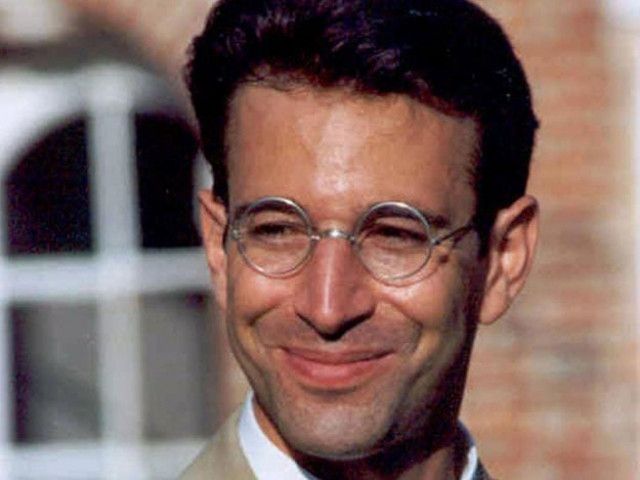Supreme Court raises doubts over Pearl case evidence
Says it will consider if accused confessed under duress or not

The country’s top court on Thursday while hearing pleas against the acquittal of the men accused of killing American journalist Daniel Pearl observed that evidence supporting confessional statements held no value in case they were given under duress.
A three-member special bench of the Supreme Court headed by Justice Mushir Alam and comprising Justice Sardar Tariq Masood and Justice Yahya Afridi was hearing petitions filed by the Sindh government and Pearl's parents.
On April 2, the Sindh High Court had commuted the death sentence of British-born Sheikh, convicted for kidnapping and murdering US journalist Daniel Pearl in 2002 to seven years. It also acquitted three others who were serving life terms in the case, almost two decades after they were found guilty by a trial court.
The Sindh government as well as Pearl’s family later moved the top court against the verdict.
During the course of proceedings, Sindh government’s lawyer Farooq H Naek told the court that the receipt of a scanner recovered from the main accused, Ahmed Omar Saeed Sheikh, did not mention his actual name because criminals usually did not disclose their true identities.
Justice Masood noted that all the evidence being presented by the lawyer supported the confessional statements of the accused. He added that one suspect had maintained that he was tortured and forced into giving the statement while another had maintained that he confessed because he faced a threat to his life.
The judge further inquired if the prosecution witness, a vendor, was aware about the identities of Fahad Naseem and Syed Salman Saqib, two of the co-accused.
“Did the witness say before the court as to who had come to purchase from him?” he asked.
Naek replied that the vendor could not have known the actual identities of his customers but the receipts mentioned the names of the two accused.
He added that the even if the confessional statements were given under duress, they were based on truth.
He pointed out that Fahad had never claimed that he was forced to confess while Saqib had maintained much later that he was tortured.
Justice Masood said it would have to be taken into consideration if the statements were given under duress or not.
The Sindh government lawyer said the case did not involve a patwari but a man who faced charges of international terrorism.
Justice Yahya inquired about where the receipt of a camera purchased by the victim was found.
Nake replied that the receipt was recovered from Sheikh’s room.
The hearing was later adjourned till Tuesday.



















COMMENTS
Comments are moderated and generally will be posted if they are on-topic and not abusive.
For more information, please see our Comments FAQ